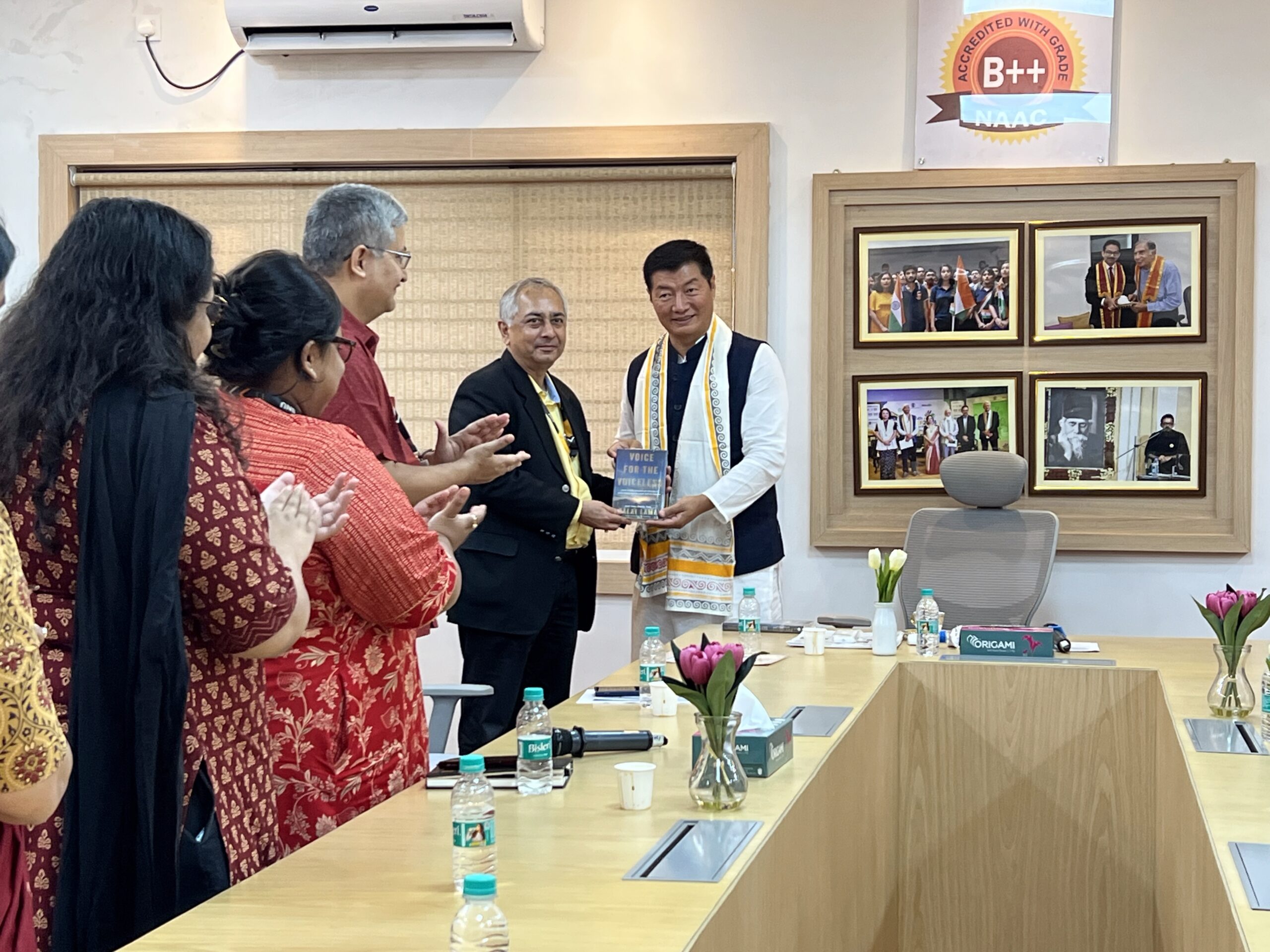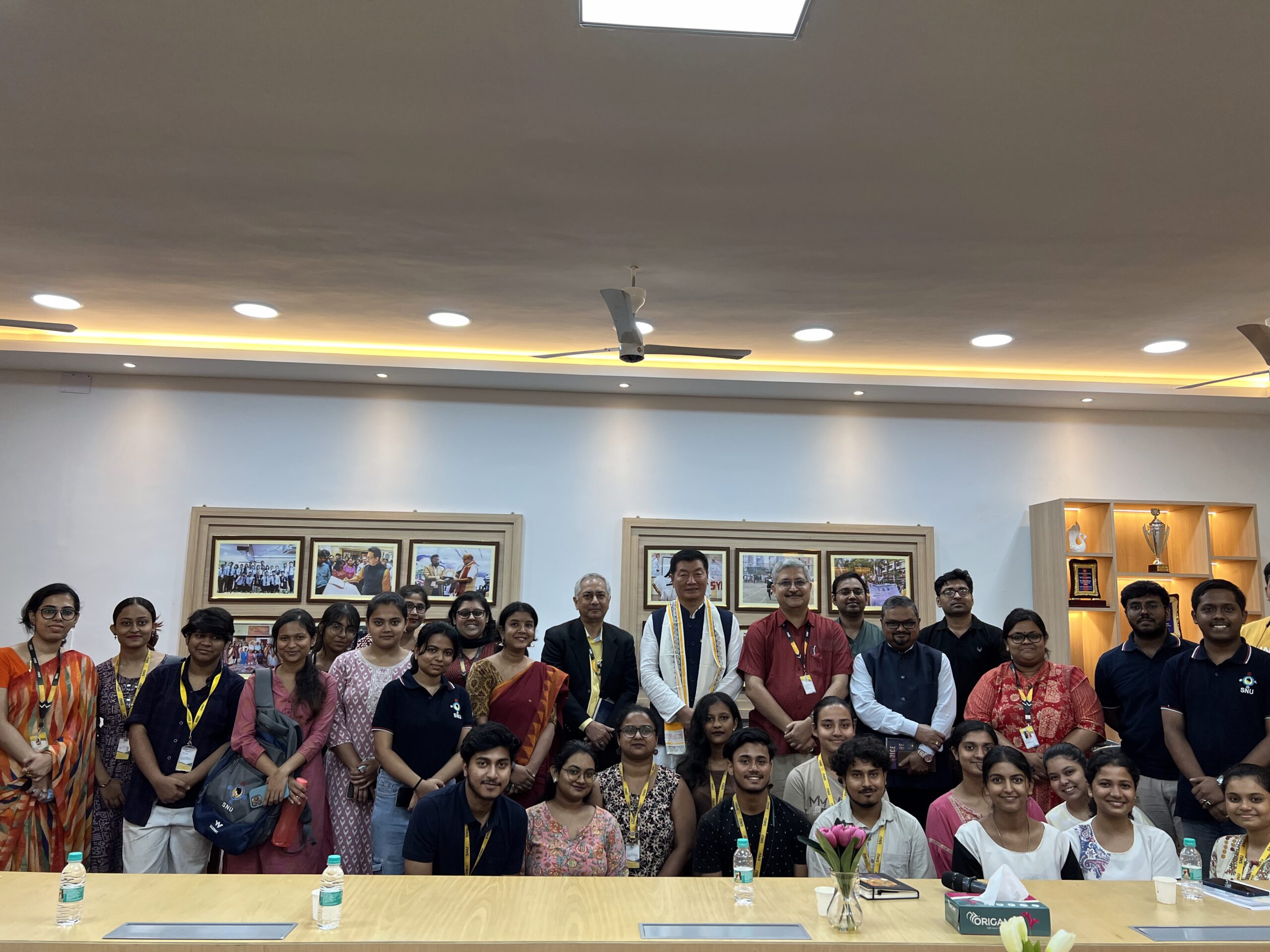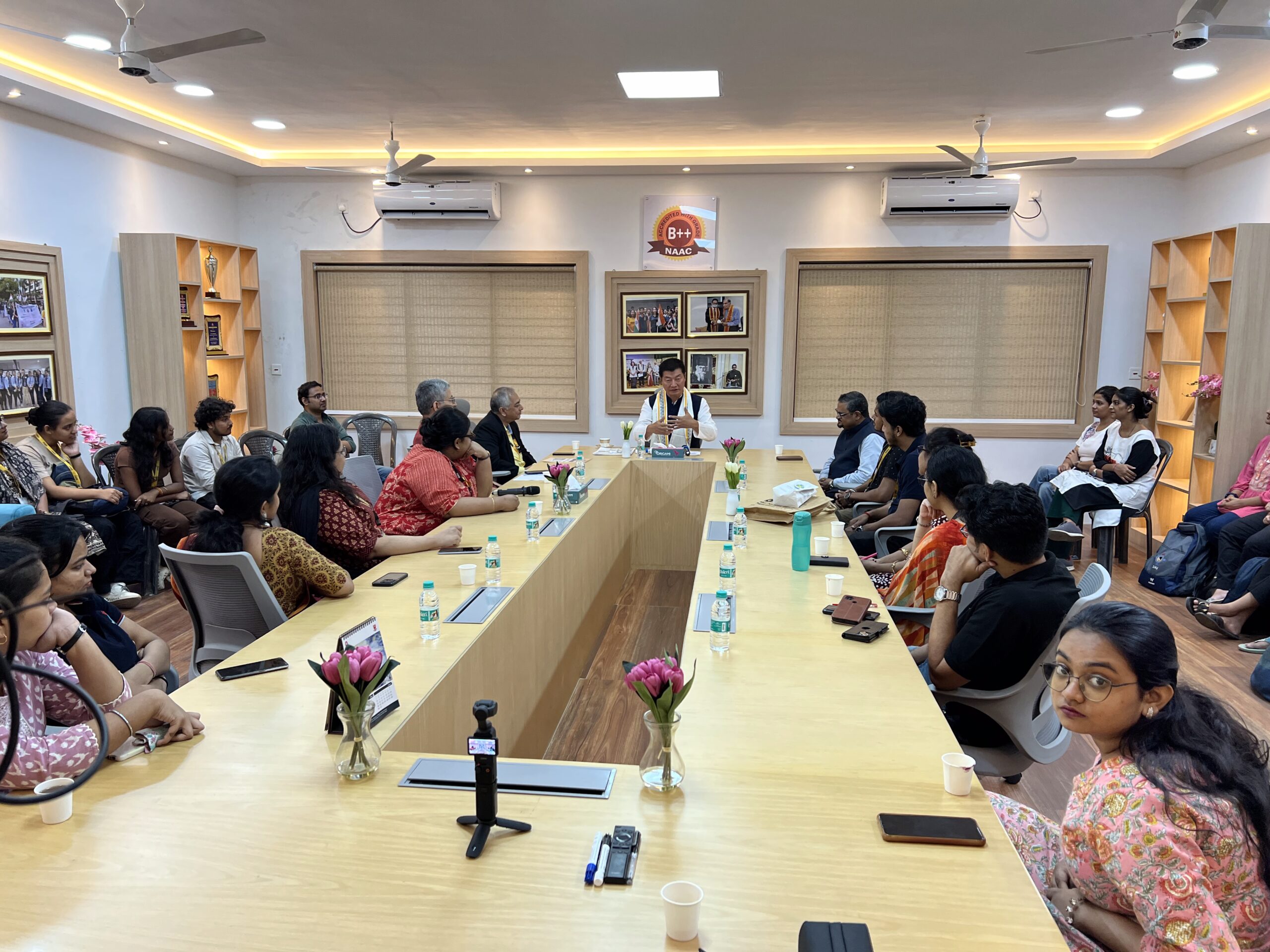In honor of His Holiness the Great 14th Dalai Lama’s 90th birthday, the 108 Peace Institute launched a lecture series in Kolkata, led by its founder, Dr. Lobsang Sangay. The series was organized in collaboration with multiple departments across four universities in the city. The inaugural session was jointly hosted by the Department of English and the Centre for New India Studies at Sister Nivedita University, Kolkata, where Dr. Sangay delivered a lecture on “Preserving the Flame: The Dalai Lama’s Contribution to the Revival of Nalanda’s Legacy.” The event was graced by two Pro-Vice Chancellors, the Dean of Faculty, the Director of the Centre for New India Studies, and an enthusiastic gathering of students from the Department of English.
In his first lecture of the series, Dr. Sangay—whose journey from a humble village in Darjeeling to Harvard Law School has been a source of inspiration for Tibetans and many others worldwide—encouraged young Indian scholars with a powerful message: nothing is impossible if one sets their mind to it.
Before delving into the lecture, Dr. Sangay reflected on his decade of service under the guidance of His Holiness the 14th Dalai Lama and his experience leading the Central Tibetan Administration after His Holiness devolved political authority in 2011. He recalled His Holiness’s advice to practice analytical meditation as a way of cultivating equanimity: when some praise you, others will criticize you—so one must avoid extremes of elation or despair and maintain emotional balance. Dr. Sangay also quoted the renowned Nalanda master Shantideva: “If there is a solution to a problem, there is no need to worry. And if there is no solution, there is no need to worry.” He emphasized that while we cannot control everything, we can control our effort and sincerity toward our work.
Turning to the heart of his lecture, Dr. Sangay highlighted the Dalai Lama’s profound contributions to the revival of the Nalanda tradition. His Holiness often calls himself “a son of India,” explaining that while his body has been nourished by India’s food for over 65 years, his mind has been shaped by the wisdom of Nalanda. Dr. Sangay explained that His Holiness advances four universal commitments—viewed through the lens of a human being, a Buddhist, a Tibetan, and a Nalanda scholar.
- As a human being, His Holiness emphasizes the cultivation of kindness and compassion as the foundation of happiness. Regardless of religion, all people seek happiness over suffering. Even if one cannot practice noble virtues, His Holiness urges that at the very least, one should refrain from harming others.
- As a Buddhist, he advocates for interfaith dialogue, recognizing that religion has often fueled divisions. His Holiness is among the few global spiritual leaders who actively meet with other faith leaders and visit their sacred sites, demonstrating deep respect. Dr. Sangay noted that sectarianism and rigid religiosity foster superiority, inferiority, and divisiveness, but at their core, all religions carry the same essential teachings of love and compassion.
- As a Tibetan, His Holiness champions the protection of Tibet’s unique culture and fragile environment. Known as the “Third Pole,” Tibet’s glaciers sustain nearly 1.4 billion people across Asia. Unlike the melting ice of the Arctic and Antarctic, which drains into the oceans, Tibetan glaciers feed Asia’s great rivers, making their preservation crucial. Dr. Sangay warned of China’s massive dam construction near India’s border, endangering downstream regions. He cited a World Economic Forum survey identifying water security as the world’s foremost crisis and noted that of 137 million global refugees, 102 million are climate refugees, underscoring the urgency of climate action.
- As a scholar of Nalanda, His Holiness has dedicated himself to reviving India’s ancient wisdom. He believes the Nalanda tradition’s insights into the workings of the mind, emotional regulation, and techniques of mental training are deeply relevant today. This has led to the development of the Social, Emotional, and Ethical Learning (SEEL) curriculum, drafted by Emory University. The program now reaches over 20 million students in 42 countries, translated into 26 languages, and in India, supported by the Piramal Foundation, especially in schools across Rajasthan. SEEL aims to nurture socially responsible, emotionally resilient, and ethically grounded individuals—addressing the imbalance in modern education, which often prioritizes career-building over emotional and moral growth.
Dr. Sangay concluded by situating Tibet’s role in safeguarding Nalanda’s legacy. He reminded the audience that in Tibetan history, national heroes are not warriors but translators who preserved vast bodies of Sanskrit knowledge in Tibetan. The Tibetan canon contains nearly 300 volumes of the Buddha’s teachings—far more than the 10 to 30 volumes preserved elsewhere. This translation movement ensured the survival of Nalanda wisdom, and to this day, Tibet remains a vital custodian of that intellectual heritage under its spiritual leadership, His Holiness the Great 14th Dalai Lama.
The event brought together 50 enthusiastic participants eager to learn about Tibet, the legacy of His Holiness the 14th Dalai Lama, and Dr. Sangay’s leadership. In keeping with the tradition of the 108 Peace Institute, the university’s Pro-Vice Chancellors were presented with His Holiness’s book Voice for the Voiceless.


